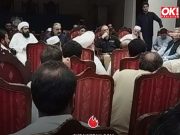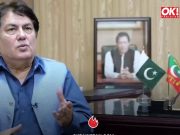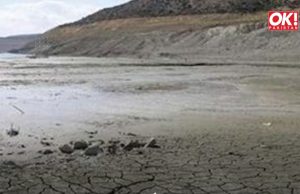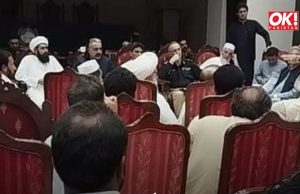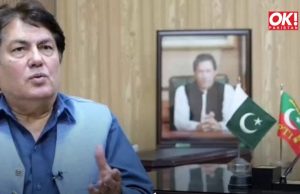According to a statement from the Prime Minister’s Office, the federal cabinet approved changes to the Toshakhana (gift repository) rules on Tuesday. These changes will allow items received from foreign dignitaries by local recipients to be displayed in public places.

The government met with Prime Minister Shehbaz Sharif in charge. They also agreed to the Appellate Tribunals Inland Revenue (Conditions of Service) Rules 2024, which say how the members of the tribunals will be chosen. The statement also said that the main job of the appellate courts was to settle tax cases that were still open.
Because the Toshakhana rules have changed, people who receive shields, souvenirs, and other similar gifts will not be able to hold them.
Instead, they will be put up in a prominent place inside the institution or group that receives them. Besides that, a record will also be kept in this case.
Also, if the gift is a book, the person who receives it will not keep it for themselves; it will be put on show in their offices or in public libraries, and a catalogue will also be kept.
Gifts that are against the law in the area will be thrown away in front of a group set up by the Cabinet Division.
As another change, it was agreed that the fee for a private sector expert to look over the Toshakhana gifts would be raised.
The Toshakhana Policy, 2023 was approved by the federal cabinet of the previous government, which was run by the Pakistan Democratic Movement (PDM). This policy said that the president, prime minister, cabinet members, and government officials could not receive gifts worth more than $300.
One exception is that the policy says a public officer can get a gift worth less than $300 as long as they pay for it the right way.
The people in the huddle agreed to the Conditions of Service Rules, 2024, based on the ministry of law and justice’s suggestions.
They also agreed with the choices made by the Cabinet Committee for Legislative Cases on May 7.
The cabinet also ordered the creation of a special group to talk about the changes to the Pakistan Electronic Crimes Act (Peca) 2016.
This group, which will be led by Rana Sanaullah, Advisor to the PM on Political Affairs, will have people from the coalition groups.
On the advice of the Ministry of Law and Justice, the cabinet also agreed to change Section 3 (1) of the laws that say how the investment advocate is chosen.
Because of the change, anyone who wants to be an investment ombudsman must have a degree in business, economics, or a related field.
The federal cabinet agreed with the choices made by the Economic Coordination Committee at its meeting on May 7.
A million bottles of multi-micro nutrients for pregnant women that were given by US humanitarian groups were also exempt from tax and duty. This was done based on advice from the National Health Ministry.
Gwadar harbour
PM Shehbaz led a separate meeting about the projects under the China-Pakistan Economic Corridor (CPEC) and Beijing’s funding. He told the people in charge to make sure that some of the country’s imports, especially those related to the government, went through Gwadar port.
A statement said that the prime minister made the choice so that Gwadar port could handle all of its duties.
The prime minister told all the ministries to work together better so that the second part of the CPEC could be finished quickly.
He told the ministries and government offices not to be careless.
PM Shehbaz also told the government to make sure that Chinese workers in the country were safe at all times.
He told the people in the meeting that the relationship between Pakistan and China was at its best ever and that the officers and offices involved should work to make the relationship better.






